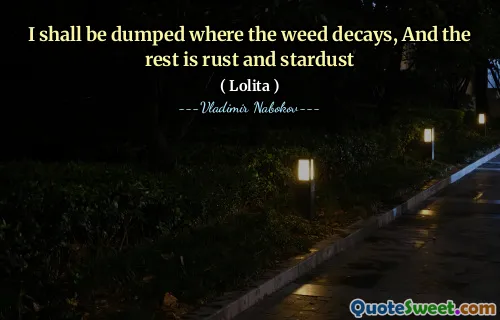but that mimosa grove - the haze of stars, the tingle, the flame, the honey-dew, and the ache remained with me, and that little girl with her seaside limbs and ardent tongue haunted me ever since.""this then is my story. i have reread it. it has bits of marrow sticking to it, and blood, and beautiful bright-green flies. at this or that twist of it i feel my slippery self eluding me, gliding into deeper and darker waters than i care to probe.
In Vladimir Nabokov's "Lolita," the narrator reflects on a past filled with vivid memories that linger in his mind, particularly his experiences in a mimosa grove. He describes a sensation of nostalgia, where the beauty of the memories is intertwined with an inescapable yearning and haunting emotions associated with a young girl. This conflict of desire and remorse shapes his narrative, suggesting a complexity of human experience involving love, pain, and regret.
As he recounts his story, he acknowledges its raw nature, filled with visceral imagery that evokes both allure and discomfort. The narrator expresses a sense of losing control over his identity, feeling himself slipping into troubling depths as he revisits these memories. The combination of passion and sorrow paints a stark picture of obsession, revealing the darker aspects of desire and the impact of those memories that continue to haunt him.






